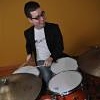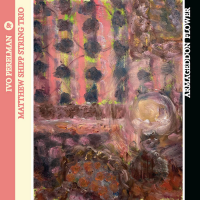Home » Jazz Articles » Interview » Bob Mintzer: Seeing the bigger picture
Bob Mintzer: Seeing the bigger picture


Bob Mintzer
saxophoneb.1953
The global community is presented with an extremely myopic point of view when it comes to the dissemination of information. Media conglomerates allow news outlets to force a certain perspective without much criticism. This bubble extends to the music world as well. Easy access to home recording equipment and online distribution has created a certain sense of isolationism in the music industry. Tasks that once required an entire staff of skilled technicians can now be accomplished by a single person. At a recent concert in Chicago, Bob Mintzer was asked if he felt that this "lack of accountability" from producers, engineers, fellow musicians etc., fosters creative independence, or if he felt that these DIY artists need to learn how to work with others.
"The technology which allows musicians to conceive music at home is a good tool for trying things and documenting your music for a fraction of the cost that a top rate studio would charge. However, this is not a replacement for the experience of playing with and writing for live musicians in real time. Your ability to program music on a computer will only be as good as your conception of how live musicians would play together to create an ensemble sound. I think the only way to learn this is through playing with other musicians. Being in a band and developing a band sound through collaboration with the other players is a creative process that one must experience to develop as a well rounded musician with something to say."
Mintzer is no stranger to the recording studio;

Yellowjackets
band / ensemble / orchestrab.1977

Russell Ferrante
keyboardsb.1952
No artist creates within a vacuum. As jazz musicians, we are instructed to study the greats from an early age. Satch, Bird, Dizzy, Monk, Miles. It goes without saying that Bob Mintzer retains an encyclopedic knowledge of these legendary artists' respective oeuvres.
A few years back, Bob's big band was headlining at the Elmhurst Jazz Festival. During a break, he touched on a few obvious influences,

Lee Konitz
saxophone, alto1927 - 2020
"Actually, 'Beyond the Limit' was inspired by the Stravinsky octet for winds. I borrowed some of the sonorities from that piece and set them in a big band wind orchestration with a certain level of groove involved. There are many great pieces that have a wealth of components that one could "slide" over into the jazz and groove realm. I've done this with Bach, Bartok, Debussy, Mozart, Bozza, and Karg Ehlert to name a few."
Modifying popular repertoire for various sized ensembles has been standard operating procedure in jazz throughout the genre's history. From Ellington to Basie, Krupa to Rich, every great band leader has employed the technique of combining original material and arrangements from the American songbook. Mintzer is no different, and his reasoning reflects a true admiration for the art form as a whole.
"I enjoy both equally. Writing original tunes gives you an opportunity to create something totally original, and find an unusual groove, harmonic map, and compelling melody that stays with you. Doing arrangements of pre existing tunes is challenging in that you get a chance to maintain the integrity of the tune you are arranging while at the same time coming up with a novel approach to that tune, generally by doing something interesting harmonically, rhythmically, and orchestration-ally."
As time marches on, we lose direct connections to the legendary jazz artists who helped shape the music we listen to. Often times, the best we can hope for is a first degree of separation, a family member or close collaborator acting as a window into the creative process of a musical genius. Bob Mintzer is unique in that he is a member of a small group of leaders still carrying the big band torch in the 21st century. His work represents the evolution of jazz as it continues to progress from American folk into a universal language. Understanding our past helps us to know our future and Mintzer is keenly aware of that.
Some final words from Mintzer regarding his tenure in what some would consider the greatest modern big band in history.
"

Buddy Rich
drums1917 - 1987

Roger Rosenberg
saxophone, baritone
Tito Puente
drums1923 - 2000
Photo credit: Alberto Reina/Phocus
Tags
bob mintzer
Interview
Ben Scholz
Benjamin Scholz Productions
United States
Chicago
yellowjackets
Russell Ferrante
Elmhurst Jazz Festival
Lee Konitz
Buddy Rich
Roger Rosenberg
Tito Puente
Comments
PREVIOUS / NEXT
Support All About Jazz
 All About Jazz has been a pillar of jazz since 1995, championing it as an art form and, more importantly, supporting the musicians who make it. Our enduring commitment has made "AAJ" one of the most culturally important websites of its kind, read by hundreds of thousands of fans, musicians and industry figures every month.
All About Jazz has been a pillar of jazz since 1995, championing it as an art form and, more importantly, supporting the musicians who make it. Our enduring commitment has made "AAJ" one of the most culturally important websites of its kind, read by hundreds of thousands of fans, musicians and industry figures every month.





 Buy Now
Buy Now





















